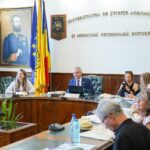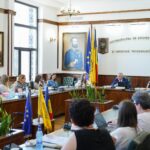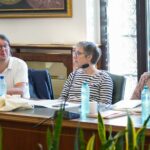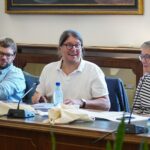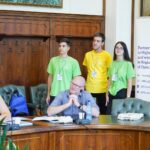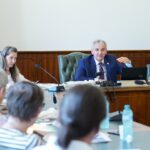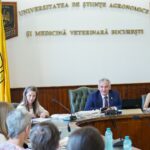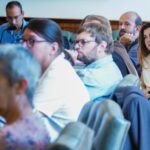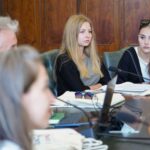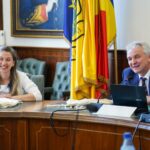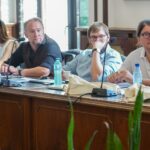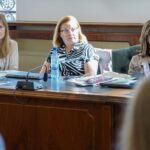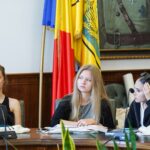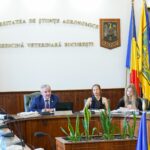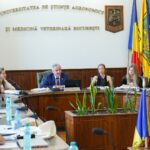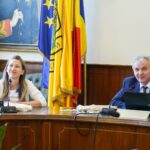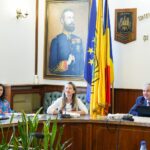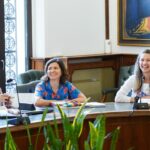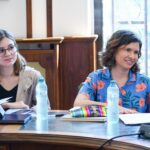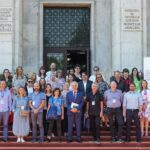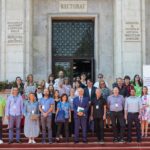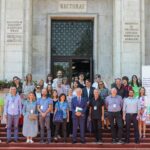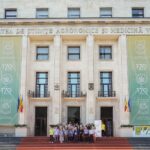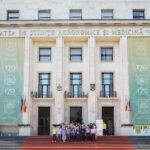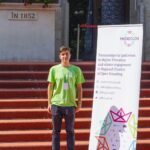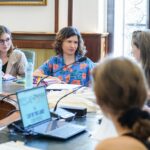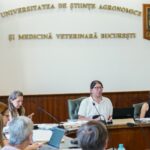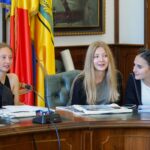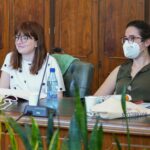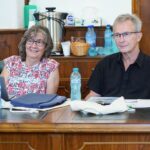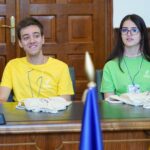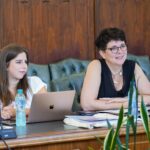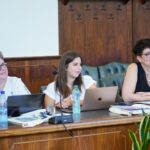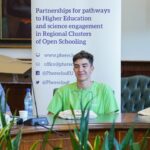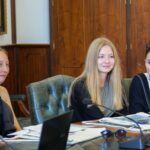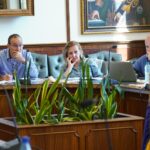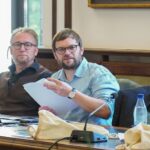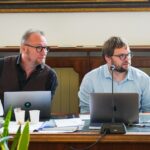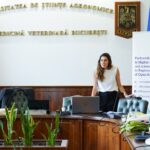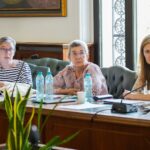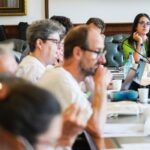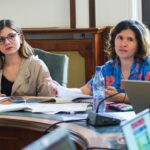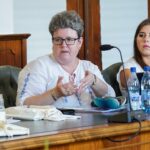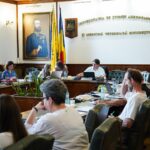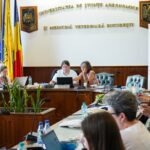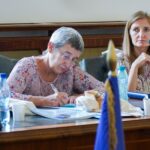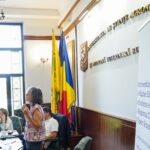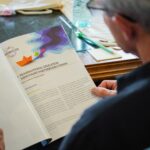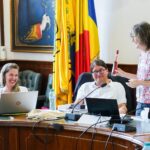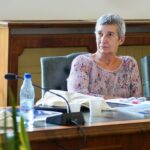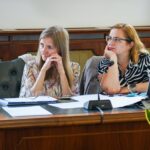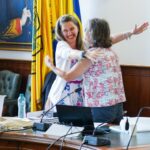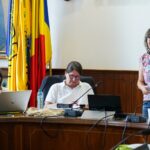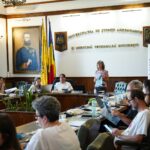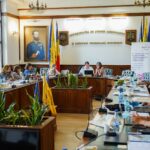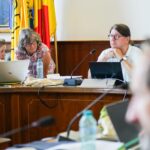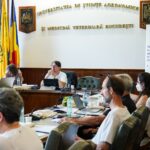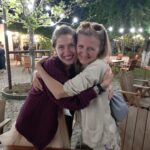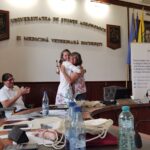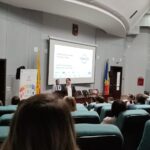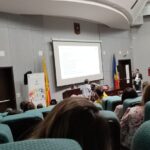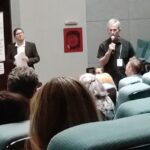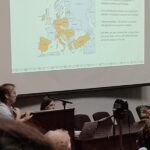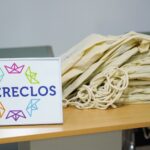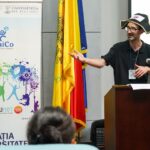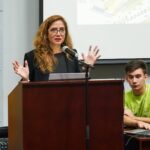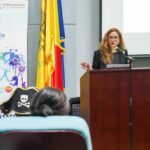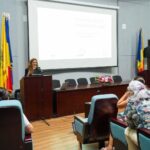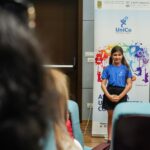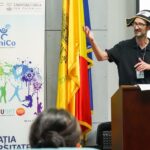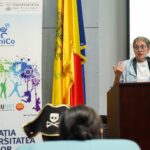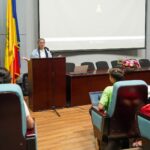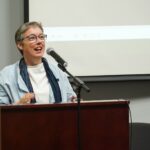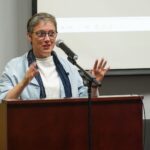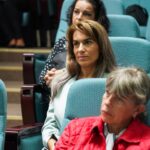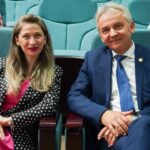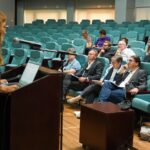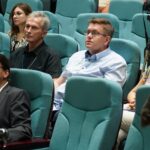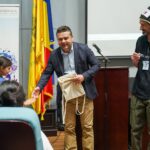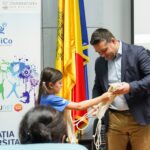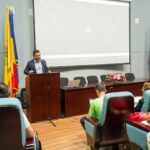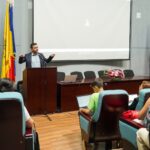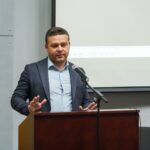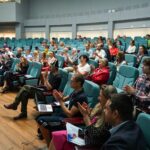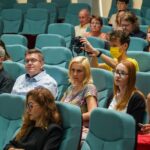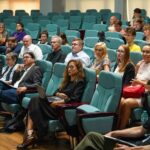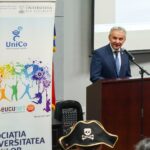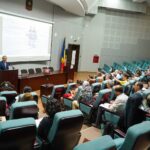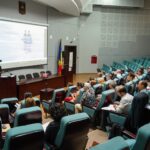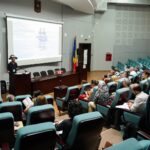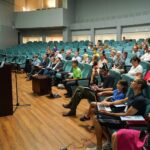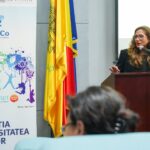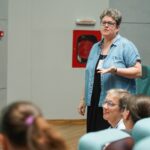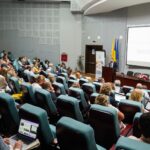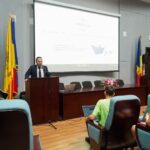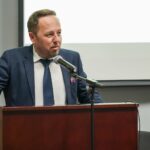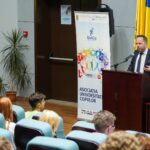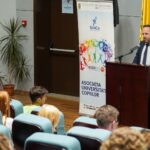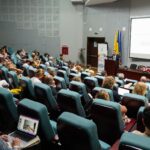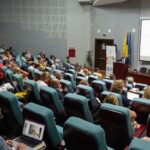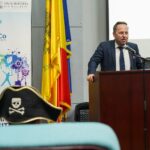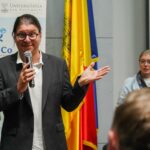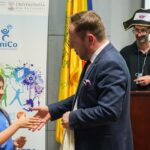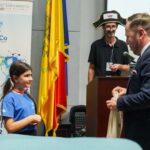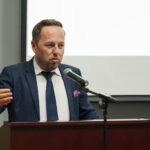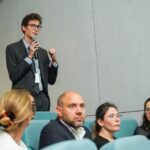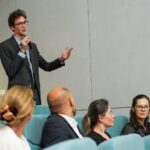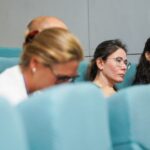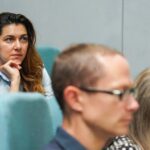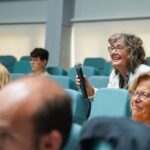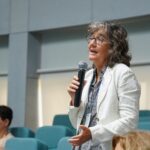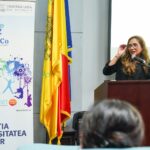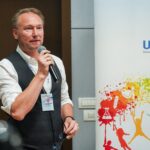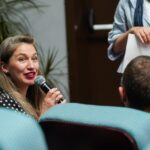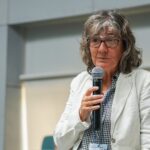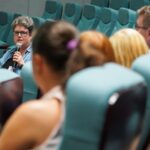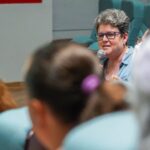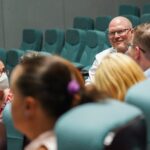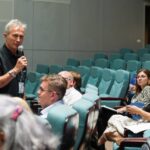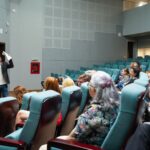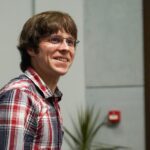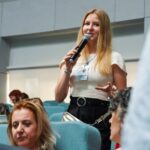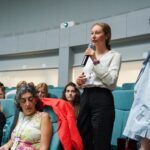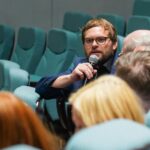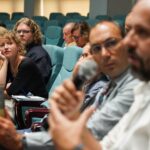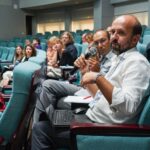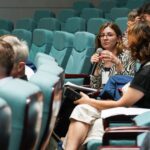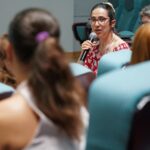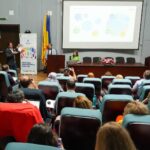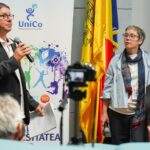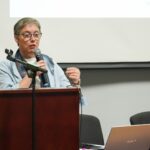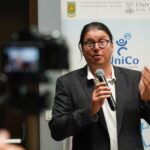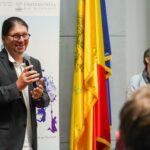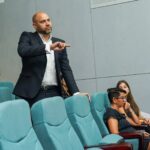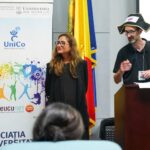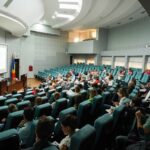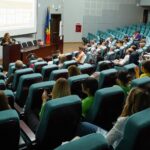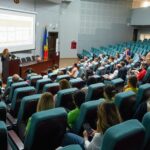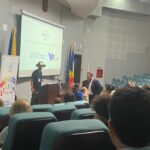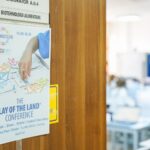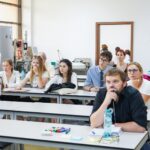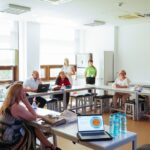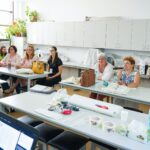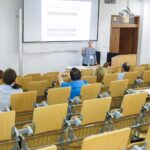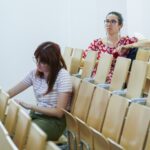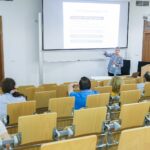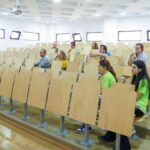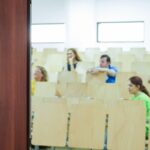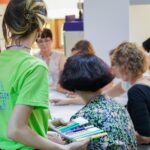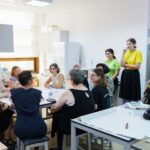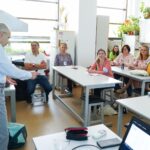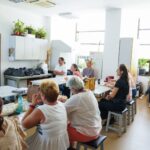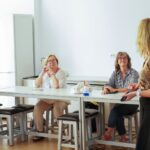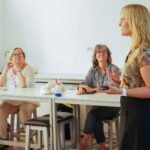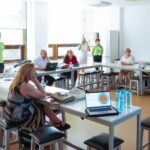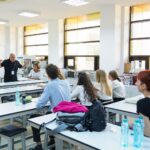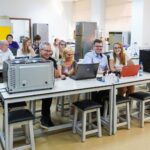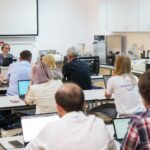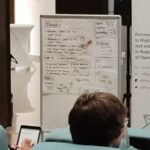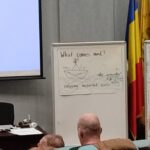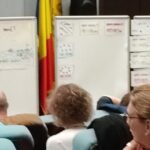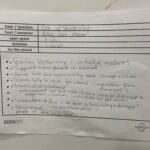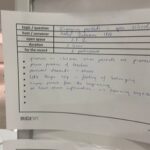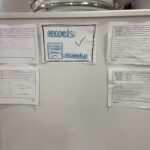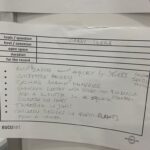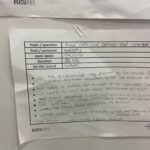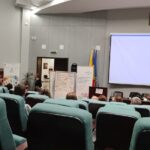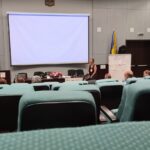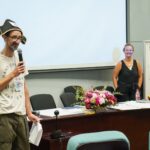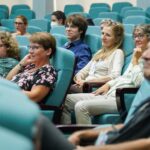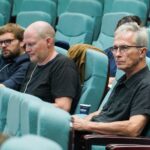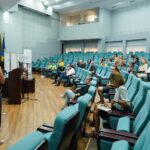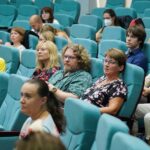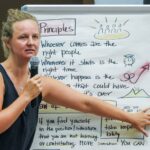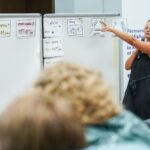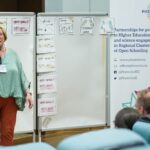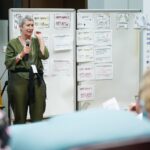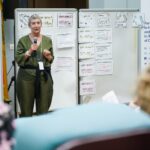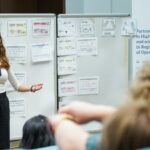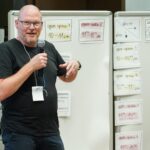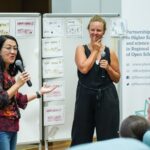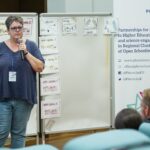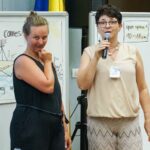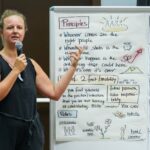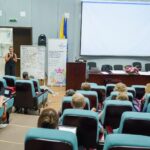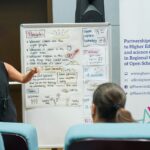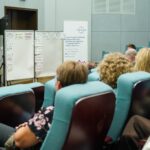“I find the great thing in this world is not so much where we stand, as in what direction we are moving: To reach the port of heaven, we must sail sometimes with the wind and sometimes against it,—but we must sail, and not drift, nor lie at anchor.”
(Oliver Wendell Holmes Sr., 1850)
The “Lay of the Land” conference provides a forum to explore, discuss and share the concept of Open Schooling. Open Schooling is a way of operating a school reflecting on external ideas, topics and challenges and incorporating them in their teaching approaches and everyday school life. In return, the creativity and potential of pupils and teachers are identified and they will become available to the community around them.
The free conference opens the discourse about “Why Open Schooling”, the relationship between the concepts of Science Capital and Open Schooling and the experience from theory and practice from the pilot programs and case studies within the PHERECLOS project.
The “Lay of the Land” conference will give you inspiring speakers, tools and hands-on workshops, thematic discussions and networking. The program aims to allow the participants to rethink their educational approaches, whether coming from the formal (e.g. teachers) or non-formal (e.g. Children’s Universities organizers). You are invited to share your own ideas and to explore new input for your future Open Schooling educational pathway.
This is the final conference of the PHERECLOS project. PHERECLOS is an EU-funded project that creates new partnerships for pathways to higher education and science engagement in regional clusters of Open Schooling. This involves stakeholders such as universities, governmental and non-governmental organizations, companies and/or other knowledge providers. This process has been continuously informed by findings from academic implementation research. The project started in October 2019 and will end after the conference in September 2022. (www.phereclos.eu)
Event Gallery -Videos
Event Gallery – Images
Wednesday, 7th September 2022 – USAMV-Campus, Bulevardul Mărăști 59
09:00-18:00 |
PHERECLOS Consortium Meeting (project consortium members only) |
|---|---|
19:00 |
Welcome Reception & Registration |
Thursday, 8th September 2022 – USAMV-Campus, Bulevardul Mărăști 59
08:30 – 9:30 |
Conference Registration |
|---|---|
09:30 – 10:00 |
Conference OpeningWelcome speeches by: Mr Ciprian Ciucu, Mayor of the 6th District of BucharestProf. Univ. Dr Răzvan Ionuț Teodorescu, Rector of the University of Agronomic Sciences and Veterinary MedicineMs Karoline Iber, Vienna University Children’s Office & President of the European Children’s Universities NetworkConferenceModerator: Phil Smith, Teacher Scientist Network (TSN) |
10:00 – 11:00 |
Introductory Talk:Claudia Aguirre Rios, Association TRACES – Les Atomes Crochus“Another brick leaves the wall: open schooling for a new education”In recent years and in many parts of the world, initiatives have emerged that seek to involve various actors of the society in the education of their young students. These initiatives have been called in different ways: expanded education, open education, expanded classroom, cities as schools… All of them recognize the need to transform the school into an active agent of society. In Europe, these initiatives have been brought together under the name of Open Schooling. Several projects have been dedicated to exploring methodologies and ways to implement them in a pertinent way in the educational systems of each country. The school in general, teachers and students in particular, seem to be willing and prepared for a change. But how prepared is society to see the walls of the school fall? |
11:00 – 11:30 |
Coffee Break |
11:30 – 11:45 |
Welcome AddressProf. Univ. Dr Sorin Mihai Cîmpeanu, Romanian Minister of Education |
11:45 – 11:45 |
Plenary PresentationPHERECLOS – Travel Log (PHERECLOS project results & animation movie) – presented by Chris Gary, PHERECLOS Project & Vienna University Children’s Office |
12:30 – 14:00 |
Lunch |
14:00 – 15:30 |
Workshops, World Cafe & Exhibition:WS1 – Empowering scientists and scholars for OS. Sharing practices, discussing problems (Paola Rodari, Sissa Medialab, Trieste Italy) WS2 The City is Asking Children (Erdoğan Kahyaoğlu, Informal Education-cocukistanbul, Istanbul, Turkey) WS3 First Generation Project – Ready for university! (Thomas Troy & Eva Resch, Vienna University Children’s Office, Vienna, Austria) WS4 Dive into open schooling through maker education (Alexandru Toma Pătrașcu, ASUR) WS5 Co-creation to solve challenges in school education (Selene Pineda & Ana Agudelo, EAFIT University, Medellin, Colombia) WS6 Going Global – A brainstorming session on setting up an International Day of Children’s Universities (Jolanta Różowska, Fundacja Małopolski Uniwersytet dla Dzieci, President of the European Children’s Universities Network) WS7 Stronger Communities of teaching Nature Science (title tbc.) (Christina Dahl Madsen, Søren Søndergaard Thisted & Mikkel Staadsen-Boesen, VIA University College, Aarhus, Denmark) WS8 Code! .. Draw! .. Stitch! / Coded Embroidery (Andrea Mayr-Stalder, Turtle Stitch, Vienna, Austria) |
15:30 – 16:00 |
Coffee Break |
16:00 – 17:30 |
Workshops & Poster Exhibition:WS9 Parental Engagement through STEAM (Judit Horgas, Liget Műhely Alapítvány, Hungary)WS10 Is open schooling suitable for everyone? (Maja, Karolina, Katarzyna, Cosmin and Mihnea, Lodz & Bucharest, Romania)WS11 Over knowledge and into practice – assessment for skills (Anna Przybyło, Kraków, Poland)WS12 Open school and PBL – Great play and deep seriousness (Søren Peter Andersen, Denmark)WS13 Micro Creature; Design Your Own (Soner Yurtdas, Mersin Yenişehir Municipality Children’s University, Mersin, Turkey)WS14 Introduction to online didactics and the use of e-learning in teaching science (Mikkel Staadsen-Boesen, VIA University College, Aarhus, Denmark)WS15 How to be an entrepreneur (working title) (Vítor Silva & Clara Vasconcelos, University of Porto)WS16 Code! .. Draw! .. Stitch! / Coded Embroidery (Andrea Mayr-Stalder, Turtle Stitch, Vienna, Austria) (the workshop is the same as in the first ws time slot) |
19:00 |
Conference Dinner |
Friday, 9th September 2022 – USAMV-Campus, Bulevardul Mărăști 59
08:30 – 9:30 |
Conference Registration |
|---|---|
09:00 – 13:00 |
Open Space:Moderated Open Space on Open Schooling; |
09:40 – 10:40 |
Workshop for Young People:How to develop an Open Schooling Workshop?“The Science of Good Food and Permaculture”Hands-On Workshop with invited school classes and option for sitting in as conference participant Phil Smith (Teacher Scientist Network)Ileana Crostache (Ita Wegman Highschool)Adrian G. Peticila (University of Agronomic Sciences and Veterinary Medicine) |
13:00 – 14:00 |
Lunch |
14:30 – 15:30 |
Synoptic Talk and Plenary DiscussionPeter Gray: “Precise but vague: the European Commission and its educational interventions, 2007-2022” This presentation will examine the evolution of EC programmes as they address the science/society interface with a mixture of idealism and bureaucracy. I will focus on Open Schooling as the latest in a series of movements attempting to influence education without interfering with national policies. My purpose is to assess how the current ecosystem around Open Schooling might be able to achieve lasting impact and a greater sense of continuity in project development |
15:30 – 16:30 |
Conference Wrap-Up |
20:00 |
Fairwell Party |
Saturday, 10th September 2022 – Tours & Study Visits
08:00 – 22:30 |
Excursions and City Tours* Guided tour in the city centre of Bucharest incl. the House of Parliament (Half Day – at the centre of Bucharest) * Visit at the Children Science Center of Bucharest and the Museum of Villages (Half Day – at the North of Bucharest) * Open Schooling project at Ovidius University of Constanța at the Black Sea (Full Day – 08:00-22:30) |
|---|
Language: The official language of the conference is English & the official language of the country is Romanian.
Currency: The official currency of the country is RON (Romanian Lei): 1 RON = 0.21 EUR (approx) = 0.25 USD (approx)
Time zone: GMT +2
Romanian visa: More information about the Romanian visa are available here.
About București
The city is rapidly gaining attention as a competitive city break that blends the wonders of modern Europe with the far flung exotism of the East. For some of us, București is just the city where you can see Ceaușescu’s Palace (People”s Palace or Palace of Parliament), for others it will always remain “The Little Paris” of the East. In fact, Little Paris is considered to be also an era in the history of București and traces of them can still be admired today in the architecture of palaces, public buildings and hotels.
WS 1
“Empowering scientists and scholars for OS. Sharing practices, discussing problems”
(Paola Rodari, Sissa Medialab, Trieste Italy)
Workshop Description
All STEM OS projects include the participation of researchers who meet and work with teachers and pupils and other actors of the networks. But also not-STEM projects may include the participation of scholars: historians, sociologists, economists, etc. All these experts need to be motivated in participating and giving their time to these activities. It is also very important that they have an open attitude and are able to understand others’ needs and to communicate their knowledge in a relevant and interesting way. That implies engagement, competences and training. This workshop aims at facilitating the sharing of good practices in the training in research communication of scientists and scholars between children unis’ organisers and other people working in the informal learning. It will tackle themes such as: barriers to the involvement of academics and ways to promote the engagement; training topics, methods and schemes; experiences in the facilitation of the dialogue between experts and not experts; etc. SISSA Medialab facilitators will organize and lead group work in different steps to come out, at the end of the workshop, with shared dos and don’ts and recommendations. Some of the ideas will be taken by the Phereclos project results.
WS 2
“The City is Asking Children”
(Sibel Cetingöz & Erdoğan Kahyaoğlu, Informal Education-cocukistanbul, Istanbul, Turkey)
Workshop Description
The aim of the workshop is to reflect the purpose, guiding ideas, structure, implication philosophy and metodology and outputs of a project that successfully reached around 7 thousand children in İstanbul through a chain of more than 50 stake holders including local administration bodies, schools, museums, NGO’s, teachers and educators within the informal education area. The project was finalized on May the 2022 and realised by Informal Education-cocukistanbul in partnership with the City Council of İstanbul.
The project aims in general to understand how the children perceive the city they live in, while they voice out what they like and dislike, what they want and wish to their benefit and to the benefit of all the people and natural inhabitants living in and around the city where they also develop their own ideas and solution proposals. The project is basically a “democratic partipitation” project where the main actors are the children as “citizens”. The stake holders are there to guide and create oportunities to them to equally and activelly participate. The project furthermore aims to create a sustainable and structured link between the children and especially the local municipal authorities to evaluate the children’s ideas together, to develop a strategy for a better city and to take concrete steps to realise the childrens needs and wishes together with the children.
The workshop will be highly interactive not only with rich visuals but also with materials for the participants to actively practice. Everyone will glance at their own city through the eyes of children. Even at Bucharest…
WS 3
“First Generation Project – Ready for university!”
(Thomas Troy & Eva Resch, Vienna University Children’s Office, Vienna, Austria)
Workshop Description
According to research, the educational qualifications of children in Austria are still to a significant extend determined by the educational level of their parents. Whereas 67% of school students whose parents earned a degree at a university enrol at a university, only 22% of school students, whose parents do not have a university degree enrol at a university. In cooperation with the University of Vienna, the LEC Vienna developed within the framework of the EU project PHERECLOS the First Generation Project. The Project addresses anyone who is the first in his or her family planning to study at an (Austrian) university. The objective is to promote their involvement in the university education process, fostering equal opportunities, removing barriers and to gain first experiences in the academic environment.
In this interactive session, we take a closer look at the First Generation Project and its design as well as the impact on First Generation school students and universities. Additionally we align all participant’s experiences to gain a broader perspective and discuss various opportunities to foster inclusion in context of universities and enable participation regardless of the educational level of parents.
WS 4
“Dive into open schooling through maker education”
(Alexandru Toma Pătrașcu, ASUR)
Workshop Description
Make it Open is an open schooling project that proposes to bring into the classroom the philosophy of the maker movement to develop a transformational approach to STEAM teaching and learning. Make it Open adopts the concept of Open Schooling where schools are transformed from traditional educational institutions into community partnerships and become agents of community well-being.
This workshop is an opportunity for all educators to gain inspiration and reflect together with other institutions that have been experimenting with new methodologies of learning. During the workshop we will present the overall project concept and run some hands-on sessions introducing the Make it Open innovative pedagogical tools – Learning Scenarios. They can be accessed through the project’s Open Schooling Navigator and their aim is to provide a supportive framework for teachers to try out an open learning approach.
WS 5
“Co-creation to solve challenges in school education”
(Selene Pineda & Ana Agudelo, EAFIT University, Medellin, Colombia)
Workshop Description
Co-creation is the sum of experiences and creativity to achieve common goals. In this workshop we will understand co-creation through solutions for social challenges where different actors such as schools, universities, companies and the government participate.
We are going to co-create solutions around social problems related to health, culture, gender equity, youth, social develop, mobility, social inclusion and environment. We will make a design process with these elements: problematize; identify solution alternatives; design and implement solutions; evaluate and adjust.
Also, we will talk about the triggers to achieve a successful co-design: consensus, conversation, activation and expasion. In the end we will talk about the co-creation experience at LEC Medellin.
The workshop will be divided into three moments for 90 minutes:
- Activation and presentation
- Teamwork to solve challenges
- Presentation of the LEC Medellín
WS 6
“Going Global – A brainstorming session on setting up an International Day of Children’s Universities”
(Jolanta Różowska, Fundacja Małopolski Uniwersytet dla Dzieci, President of the European Children’s Universities Network)
Workshop Description
As a group of volunteers from the Children’s University of Lodz, we have had a chance to gain a broad experience with open schooling in recent years. Starting from a group of children who had no idea what open schooling is, we have come to the point where we can call ourselves experts in this field. Therefore, we would like to share our experience and knowledge on this subject with you.
During this workshop, with our friends from Romania, we will introduce the concept of open schooling from our perspective. We will also discuss and bring to life the practical application of these methods with the participants of the workshop.
We will try our best to create some space for a debate about open schooling from a wider perspective.
WS 7
“Stronger Communities of teaching Nature Science”
(Christina Dahl Madsen, Søren Søndergaard Thisted & Mikkel Staadsen-Boesen, VIA University College, Aarhus, Denmark)
Workshop Description
The focus of this workshop is divided into two topics both with unique importance to the Danish after education project SNL (Stronger Communities of teaching Nature Science).
What is a systemic approach to continuing education of Danish Schools teachers and what’s important in designing, implementing and sustaining new knowledge and learning in the classrooms of the public schools?
The first part of the workshop contains an introduction of the Danish after education project; SNL. This project aims to change an develop the quality of teaching the nature sciences in the public schools of Denmark by using a systemic approach that focus on capacity and community building instead of a singular focus on the competencies of the teacher. The project began in 2019 and involves the Danish Governance, 6 University Colleges and 36 public schools.
The workshop will discuss the importance of;
- designing research-based continuing education with the active use of formative evaluation and action research
- an active and supportive schools management
- the influence of the time aspect
- the changing of a local school culture and difficult role of locale project ambassadors
We will dig into the process of developing and implementing the project revealing what we learned and how we used the new knowledge to strengthen the project concept.
We will also invite the participants to contribute with inspiration and ideas from their perspective and experience within the field of continuing education.
The second part of the workshop will focus on the content knowledge of the SNL-project; How to teach focusing on the natural sciences competences of the students.
This part of the workshop will be activity-based involving the participants in trying out a science experiment as a way to demonstrate how to teach within a specific mindset and focus. Afterwards there will be a plenum discussion that reflects on what challenged the teachers of SNL in there aims to implement this mindset in their school practice.
WS 8 & WS 16
“Code! .. Draw! .. Stitch! / Coded Embroidery”
(Andrea Mayr-Stalder, Turtle Stitch)
Workshop Description
Learn how to use TurtleStitch in diverse contexts.
In the framework of the TEMP Partnerships, a group focused on coded-embroidery. The participants – mainly STEAM educators and artists – developed different practices and shared experiences of practical use of this design method.
The workshop at the conference introduces the Open Source Project TurtleStitch (www.turtlestitch.org) and invites active participation
(individually or in teams). Turtlestitch can be used for creating novel patterns for embroidery, combining the abstract logic of computing and the materiality of textiles. Its primary use is educational, as it offers a way of introducing programming to audiences with diverse interests.
Note: Participants need a laptop (with mouse) and Internet browser for this workshop!
WS 9
“Parental Engagement through STEAM”
(Judit Horgas, Liget Műhely Alapítvány, Hungary)
Workshop Description
Builiding on ourcomes of the EU-funded Open School Doors, Parents Engage and ParENTrepreneurs projects, this workshop will explore in an interactive format the various ways parents can and should be engaged in open schooling programmes.
WS 10
“Is open schooling suitable for everyone?”
(Maja, Karolina, Katarzyna and Ștefan; Lodz & Bucharest, Romania)
Workshop Description
As a group of volunteers from the Children’s University of Lodz, we have had a chance to gain a broad experience with open schooling in recent years. Starting from a group of children who had no idea what open schooling is, we have come to the point where we can call ourselves experts in this field. Therefore, we would like to share our experience and knowledge on this subject with you.
During this workshop, with our friends from Romania, we will introduce the concept of open schooling from our perspective. We will also discuss and bring to life the practical application of these methods with the participants of the workshop.
We will try our best to create some space for a debate about open schooling from a wider perspective.
WS 11
“Over knowledge and into practice – assessment for skills.”
(Anna Przybyło, Kraków, Poland)
Workshop Description
According to Solo taxonomy (after Biggs and Collis 1982) there are a few stages of learning: Prestructural, Unistructural, Multistructural, Relational and Extended abstract. At school, we usually get only to Relational way of getting knowledge. This means that we teach kids how to compare, contrast, classify and relate. Students can think creatively and create only if they are let to do so. How can we change written tests into practical knowledge, and how to learn from mistakes? I invite you to my presentation.
WS 12
“Open school and PBL – Great play and deep seriousness”
(Søren Peter Andersen & Anne Katrine Blond, Denmark)
Workshop Description
Get introduced to ‘Project-based learning and innovation in an open school’. The presentation is for anyone involved in teaching, innovation and PBL.
Project-based learning is a teaching method that is rapidly entering the European education system. But what elements should a PBL and Open School programme contain, and how do we create a culture and didactic stance that has a common language across the many disciplines of primary schools? In this presentation, you will hear about didactic models that provide schools and teachers with a common didactic direction for working with PBL, open school, creativity and innovation skills.
See individual models here: https://www.klimazirkus.com/english
WS 13
“Family based early childhood development”
(Soner Yurtdas, Mersin Yenişehir Municipality Children’s University, Mersin, Turkey)
Workshop Description
The aim of the Family-Based Early Childhood Development “Yenişehir Model” project is to ensure that all children aged 0-8 become individuals who have reached the highest level of their developmental potential through education starting from the family, and that no child is left behind.
The model consists of seven steps, which are going to be presented and worked upon in the workshop.
WS 14
“Introduction to online didactics and the use of e-learning in teaching science”
(Mikkel Staadsen-Boesen, E-learning consultant, VIA University College, Denmark)
Workshop Description
Building on our talk on the SNL (Stronger Communities of teaching Nature Science) project, I will dig a bit deeper into the specifics of online didactics and create an overview of the most important things to account for as an educational designer. This will be a short talk focused on the practical application of online learning theory, and flipped learning methods, and how they can be applied in an open schooling context.
After this we will look at the educators toolbox – videos and course designing for educators Introducing simple ways to bring the natural world into the classroom, and create engaging online support for your teaching. Finally we will look at how easy it can be to create your own online course. We will group up, and take a well-known subject, from which we will create short courses using Articulate Rise.
Note: please bring laptop for this workshop.
Key takeaways
- How to use online didactics to aid in open schooling
- What are the effects of online learning on students
- What not to do – creating online education that works
- How to get started – make your own courses using www.articulate.com/360
WS 15
“Learning how to be an entrepreneur”
(Joana Santos (coord.), Vítor Silva, Clara Vasconcelos, Bruno Pinto, University of Porto)
Workshop Description
This workshop will reflect the experience of Universidade Júnior (Universidade do Porto) regarding the program “How to be an Entrepreneur”. Participants will have the opportunity to:
1 – get familiarized with some techniques on how to address a challenge (problem or opportunity) through Design Thinking.
2 – understand how the Business Model Canvas and the Lean Startup method can help young entrepreneurs to learn about the contexts of their projects, markets (clients and other stakeholders) and to extract meaning from testing hypotheses.
3 – recognize the relation between Entrepreneurship, Design Thinking, Lean Startup and the Business Model Canvas.
WS 16: See WS 8
This workshop is a repetition of WS 8 in the first WS time slot
Claudia Aguirre Rios (she, her)
Claudia Aguirre Rios is a trained mining engineer and has a MsC in Science communication. For ten years, she worked as Director of Contents and Education at Parque Explora, a science center in Medellin, Colombia. For four years she was Coordinator of the Andes node of the Latin American Network for Popularization of Science and Technology. In 2018 she moved back to France and worked for a European project (PERFORM), a science centre (Exploradome) and now as project manager at TRACES where she coordinates the methodology Work Package of the SALL (Schools As Living Labs) project. She organized and participated in International Science Theatre Festivals, Public Engagement with Science Conferences, Public Engagement with Science and Science Communication Congresses. She has coordinated several collective books in Science Education in Science Centers, Science Theatre and Science Museums.
Peter Gray
Peter Gray had a varied career, transporting equipment for rock bands, taxi driving and working on a farm before returning to higher education in 1994. He studied media, environmental education, philosophy and adult education before gaining his PhD in 2005 from the University of Stirling, UK.
For the past fifteen years, Dr Gray has worked on collaborative international projects in science education, teacher education and educational democracy. This work included the evaluation of such projects as well as participating in project formation and management. He recently retired from the Norwegian University of Science and Technology in Trondheim, for which he worked on over forty such projects.
He has three main professional obsessions:
- Disrupting the current structures of academic research.
- Reforming education in the direction of personal growth rather than standardised achievement.
- Making education a public good rather than a branch of the economy.
Dr Gray lives in Edinburgh with his partner and younger son, and loves tools, particularly guitars, bicycles and hammers.
Conference organiser contact
Children’s University of Romania – local conference host
Laura Cristea
Mail: laura.cristea@unico.org.ro
Phone: +40744388285
Mirela Paraschiv
Mail: mirela.paraschiv@unico.org.ro
Phone: +40724559840
PHERECLOS & EUCU.NET contact
Kinderbüro Universität Wien GmbH – project coordinator
Chris Gary
Mail: christian.gary@univie.ac.at
Phone: +4366488672333
Cyril Dworsky
Mail: cyril.dworsky@univie.ac.at
Phone: +4366488672334


